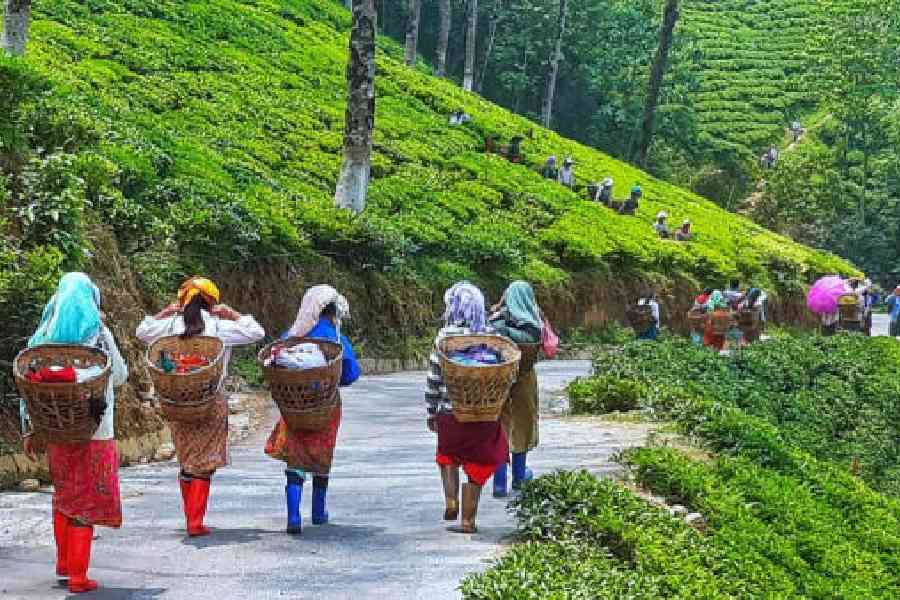A storm is brewing over Darjeeling’s premium first flush tea that commands the highest prices in the international market.
Ajoy Edwards, the chief convener of the Indian Gorkha Janshakti Front (IGJF), has asked workers not to pluck first flush till the time the Darjeeling Tea industry agrees to a 20 per cent bonus for them.
“Workers must not pluck first flush unless the management signs an agreement to provide 20 per cent wages (as bonus) or else our workers have to go through distress during the Puja/Diwali time like previous years,” Edwards said on Sunday.
However, according to the date set by the Tea Board of India, workers in north Bengal are supposed to pluck leaves from February 27 this year.
Edwards’s announcement has worried tea planters. A total of 87 tea gardens sell their produce as Darjeeling Tea.
Usually, the annual bonus for tea workers is negotiated between the union and management just before Durga Puja.
Bonus negotiations are a sensitive issue. They have often been acrimonious, especially when the management refused to grant a bonus at the rate of 20 per cent of their worker’s annual earnings, the highest permissible bonus rate.
Workers and leaders have been on hunger strikes for the demand. General strikes have also been called in the region to press for the demand in the past.
Edwards’s move is to exert pressure on the management when it hurts the most. The IGJF has also decided to organise a public meeting in Mirik on February 8 to mobilise support on the issue.
“We also want immediate implementation of the minimum wages for tea garden workers,” said Edwards.
A senior planter of the Darjeeling tea industry stated that they were worried about Edwards’s call.
“According to the guidelines of the Tea Board, plucking in Darjeeling hills had stopped from December 1 and will resume on February 27. For three months, we are paying workers despite no production. Hence, first flush production is extremely important for us,” said a planter.
First flush accounts for 20 per cent of the annual tea production. This tea, most of which is exported, commands the highest price.
Many planters believe that Edwards’s call can gather steam in the hills, given the sensitivity of the issue.
“Disruption in production of first flush would mean importers would be compelled to move towards Nepal tea,” said a planter.
A part of the tea-growing area of Nepal is contiguous to Darjeeling hills with similar climate and topography.
Many planters maintain the 104-day strike in 2017 called by Bimal Gurung’s Gorkha Janmukti Morcha as part of the Gorkhaland agitation had already hit the industry hard.
“In 2017, many importers moved to Nepal tea and never returned to Darjeeling Tea,” said a planter.
The Darjeeling Tea industry, which earlier used to produce around 14 million kg of made tea a year, now produces only some 6.8 million kg of made tea.
A planter said a false narrative of the tea industry raking in huge profits is
being propagated.
Many in the Darjeeling tea industry urged tea unions to run closed or abandoned tea gardens instead of engaging in disruptive activities. There are 12 closed tea gardens in the Darjeeling hills.










